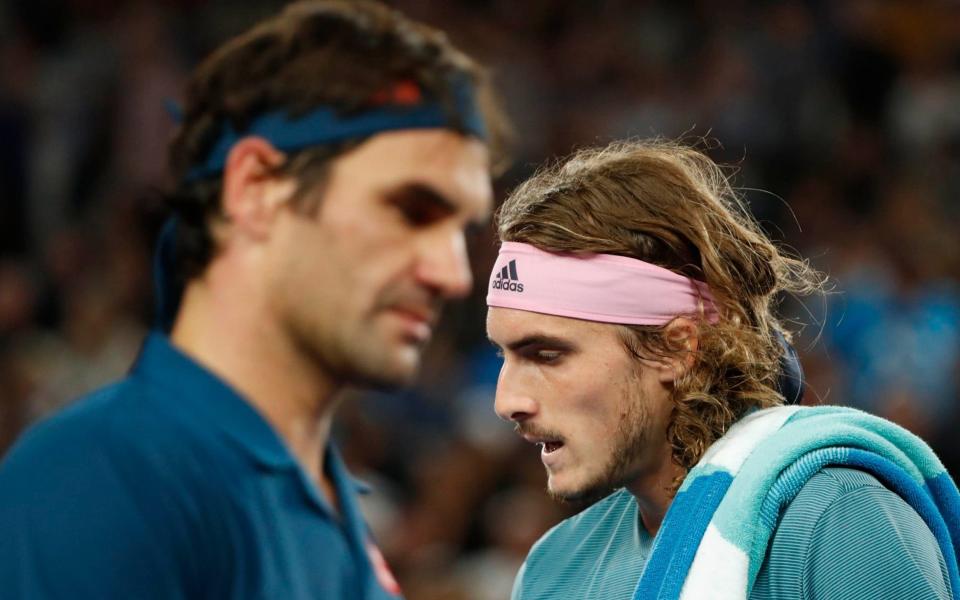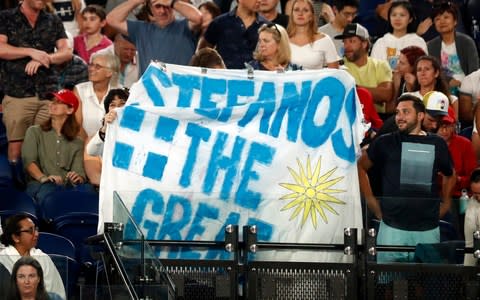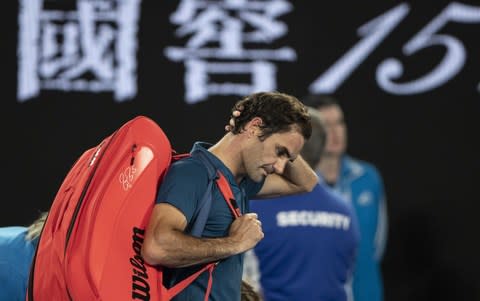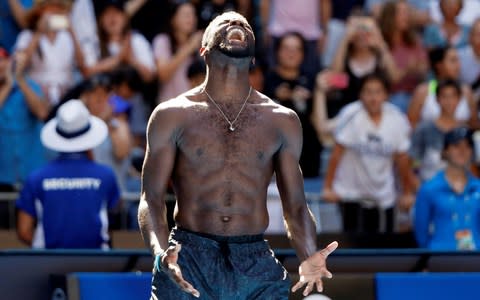Stefanos Tsitsipas' win over Roger Federer felt like a tale of the apprentice surpassing the master

Roger Federer was briefly refused entry to the player’s area here on Saturday, after a stickler of a security guard spotted that he wasn’t wearing his accreditation badge. Yesterday, the great man suffered further indignity, as he found himself summarily ejected from the tournament.
The culprit this time was Greek youngster Stefanos Tsitsipas who produced a masterpiece of classical tennis to curtail Federer’s sequence of 17 straight victories at the Australian Open. “I am the happiest man on earth right now, I cannot describe it,” an emotional Tsitsipas told John McEnroe in his on-court interview, while clutching his shoulder-length mane in disbelief.
The result was a blow for Federer’s legions of international fans. But if we are thinking of the future, it’s no bad thing that the man to oust him should have been Tsitsipas, a graceful performer whose instinctive volleys and one-handed backhand can only be described as Federer-esque. These two players have never faced each other before in a competitive match but it still felt like the master being surpassed by the apprentice.
Even Federer acknowledged afterwards that he could see a little of himself in his conqueror. “I guess so. He has a one-handed backhand and I used to have long hair, too. He has a continental grip [and] that’s more my way, let’s say, than Rafa’s way.”
Apart from resembling a bohemian artist from the Rive Gauche, Tsitsipas also looks like the real deal. Physically, he is both explosive and elastic – a combination which soaks up the impact of these rock-hard courts – while his mental game was awe-inspiring on Sunday night.

Federer applied huge pressure throughout, but Tsitsipas simply refused to crack, saving all 12 break points that he faced. Even when the British chair umpire James Keothavong hit him with a pair of time violations in the very first game, the second of which cost him a first serve, he managed not to unleash the stream of Greek obscenities which had sullied his third-round victory over Nikoloz Basilashvili.
Meanwhile, Federer’s forehand – the peerless scalpel that has carved out the bulk of his 99 career titles – was losing its edge. “I have massive regrets,” Federer said after his 6-7, 7-6, 7-5, 7-6 defeat. “I felt like I have to win the second set [and that] cost me the game tonight. I also didn't break him at the Hopman Cup [in a recent exhibition match that Federer won in two tie-break sets]. So clearly something is wrong how I return him.”
This was a contest between the youngest man left in the tournament and the oldest, their birthdays separated by 17 years. After the match, McEnroe spoke to Tsitsipas about the “changing of the guard”. But when this was put to Federer, he sounded slightly peeved.

“Yeah, sure,” Federer scoffed. “He's in front of the mic a lot. He's always going to say stuff. I love John. I've heard that story the last ten years. From that standpoint, nothing new there.”
For many, Tsitsipas’s performance brought back memories of Federer’s own moment of self-revelation. In the summer of 2001, he dethroned Pete Sampras on the Centre Court of Wimbledon in 2001. We went from Pete the Serve to Roger the Great, and who is to say that the next monarch of the game might not be Stefanos the Deep?
Tsitsipas is a loner, a Greek philosopher who admits that he has few friends in the locker-room, but whose favourite activities involve photography and video production. “It’s better going outside and creating something rather than just sitting inside playing video games,” he told one recent interviewer. “There’s a lot of things out there to discover.”
To return to that parallel with 2001, Federer needed a while longer to adapt to the world’s expectations, eventually opening his grand-slam account at Wimbledon two years later. And one suspects that Tsitsipas, for all his obvious talent, might not be ready to take this title.
Admittedly, he will probably have more power left in his legs than his quarter-final opponent Roberto Bautista Agut, whose five-set victory over Marin Cilic last night was his third such lung-buster in the space of four matches. But he could potentially wind up having to beat Rafael Nadal – who cruised through yesterday in just 125 minutes – and Novak Djokovic in successive matches. To take out one member of the Big Three is extraordinary in itself; to complete the set would be all but impossible.
Yesterday, Tsitsipas and Bautista Agut both earned their first appearance in the quarter-finals of a slam, and so did the young American Frances Tiafoe, who overcame Grigor Dimitrov with a quite stunning performance on his 21st birthday. These young prospects have been creeping slowly towards the big time, like children playing grandmother’s footsteps. But a paradigm shift cannot be far away.

The stats reveal that this is now Federer’s longest run without a grand-slam semi-final since he was 21. Questions will inevitably circulate about his future, but he confirmed yesterday that he plans to play the French Open for the first time since 2015.
On Rod Laver Arena on Sunday, it was Federer who earned the louder cheers. But in the grounds of Melbourne Park, it was a different story. This city is often said to have the second-biggest Greek population in the world, after Athens, and it felt like the whole community had flocked to Garden Square. With Tsitsipas pressing on, and home favourite Ashleigh Barty still going in the women’s event, the so-called “happy slam” could soon be cheerier than ever.

